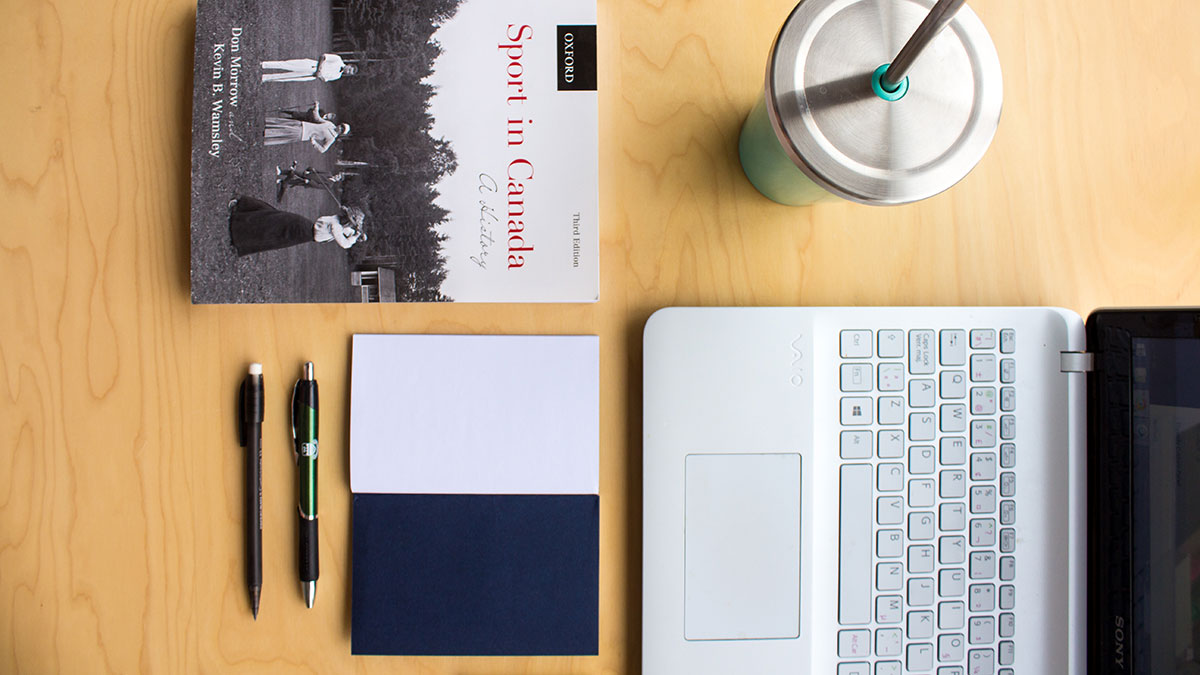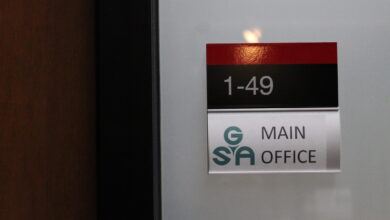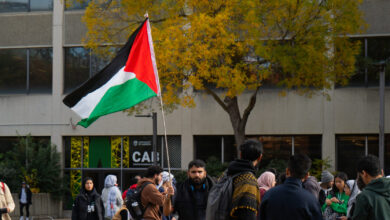Orientation: Crack The Books
 Christina Varvis
Christina VarvisIf there’s anything university students know well, it’s the feeling of all-consuming stress.
With labs, projects, essays, and exams, the workload put on a student can be daunting. We talked with Dr. Mebbie Bell, the Associate Director of Learning Resources at the Student Success Centre, about the best ways to maintain academic success.
What group of students do you tend to see most at the Student Success Centre?
“Well, we serve anyone from new students to medical residents studying for their certification exams. At this time of year, we see a lot of new students. These students may or may not be new to university, but find themselves in a new learning environment, such as those in graduate school or transfer programs.”
From there, what suggestions would you make to a first-time post-secondary student?
“The most important thing for these students to be aware of, regardless of program, is to be aware that things are going to change. The research says that it’s not the smartest students who find success at university, but those who are most willing to adjust to their new environment.
Little things, like the pace of learning and the volume of material you are expected to master after 12-14 weeks, can be intimidating. Just being aware that the parameters of your learning environment have changed is a great place to start.”
And how about for experienced students, what would you advise them to do?
“I would say to envision having your best term, to look back at years past and see what did work and where you could improve. What skills and behaviours got you through a tough day or week? Focus on strengthening those, as well as one or two things you can improve on.
Obviously, the biggest change a student can make is to attend class and review notes within 24 hours. This consolidates that information and stores it in long term memory, as well as preparing you for the next class.”
Do you think there’s an attitude among students to “go it alone” when it comes to academic stress?
“I think there might be a cultural perception that being independent means dealing with this stuff on your own, but in reality being independent means making responsible decisions. One of the best decisions you can make is to ask for help as soon as you need it. Some people think that asking for that help means they’re not smart enough to be here, and that couldn’t be further from the truth.”
What are some resources students can access when they need help?
First and foremost, talk to your TA or instructor. You can always get a meeting with them, and they know the material inside and out. Often, a few minutes with an instructor can help you peg down the one little thing that’s missing and help you move on. Being a such a big campus can sometimes mean that some academic resources can be hard to find, but they’re here if you look.
Is there anything else that students should know?
Though it may seem overwhelming, it’s okay to be excited. Find some people with similar interests to you, join at least one extra-curricular group. Connections like this make transitions less stressful, and this helps you balance it all.
Give yourself some time off of studying, avoid that cognitive overload and give your brain a break. Most importantly, keep a regular routine. It may sound boring, but it allows you to transition more effectively to a new learning environment.
THE GATEWAY LIST OF ACADEMIC HELP SPOTS
There are a bunch of places to go for help on campus, here are some of the best.
Student Success Centre, 2-300 SUB, [email protected]
Go here to become academically new and improved. They can help you out with general scholastic strategies and great study tips.
Decima Robinson Support Centre, CAB 528, [email protected]
Is that pesky science requirement giving you fits? The good folks at Decima Robinson can give you one-on-one help with math and stats questions.
Centre for Writers, 1-42 AssinIBOIA Hall, [email protected]
It doesn’t matter what the assignment is, the Centre for Writers can help you with all things written. Essays, labs, presentations, creative writing; you can book a one-on-one appointment for help with all of it.
Peer Support Centre, SUB 2-707, [email protected]
If you’re like the rest of us and feel a bit intimidated asking profs or TAs university stuff, the SU has the place for you! From academic woes to general crises, the volunteers at the PSC provide a helping hand and listening ear.




